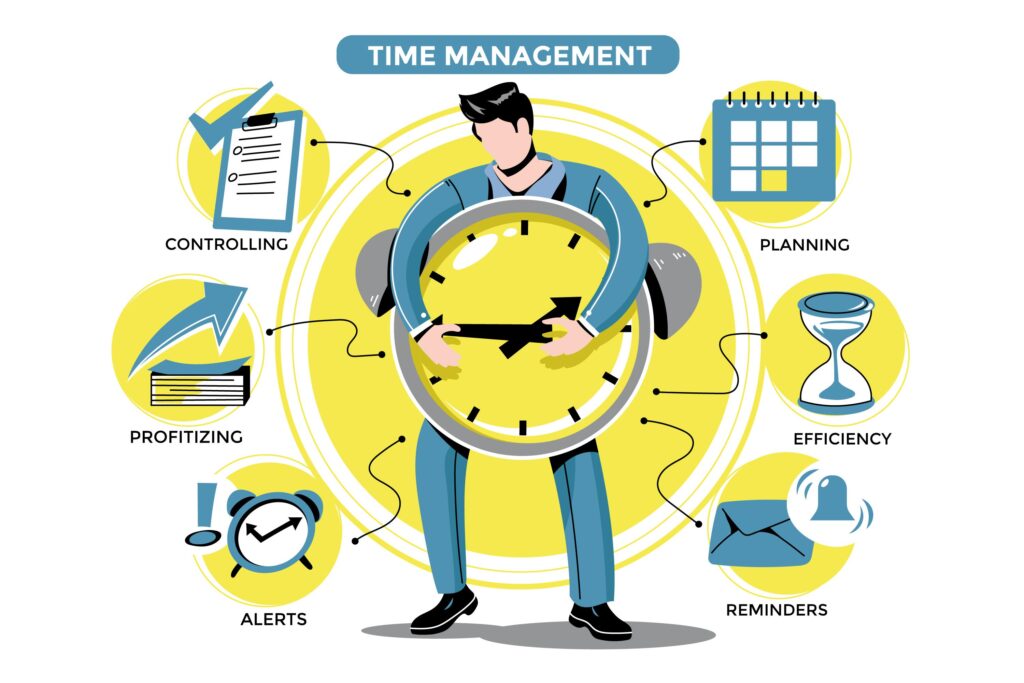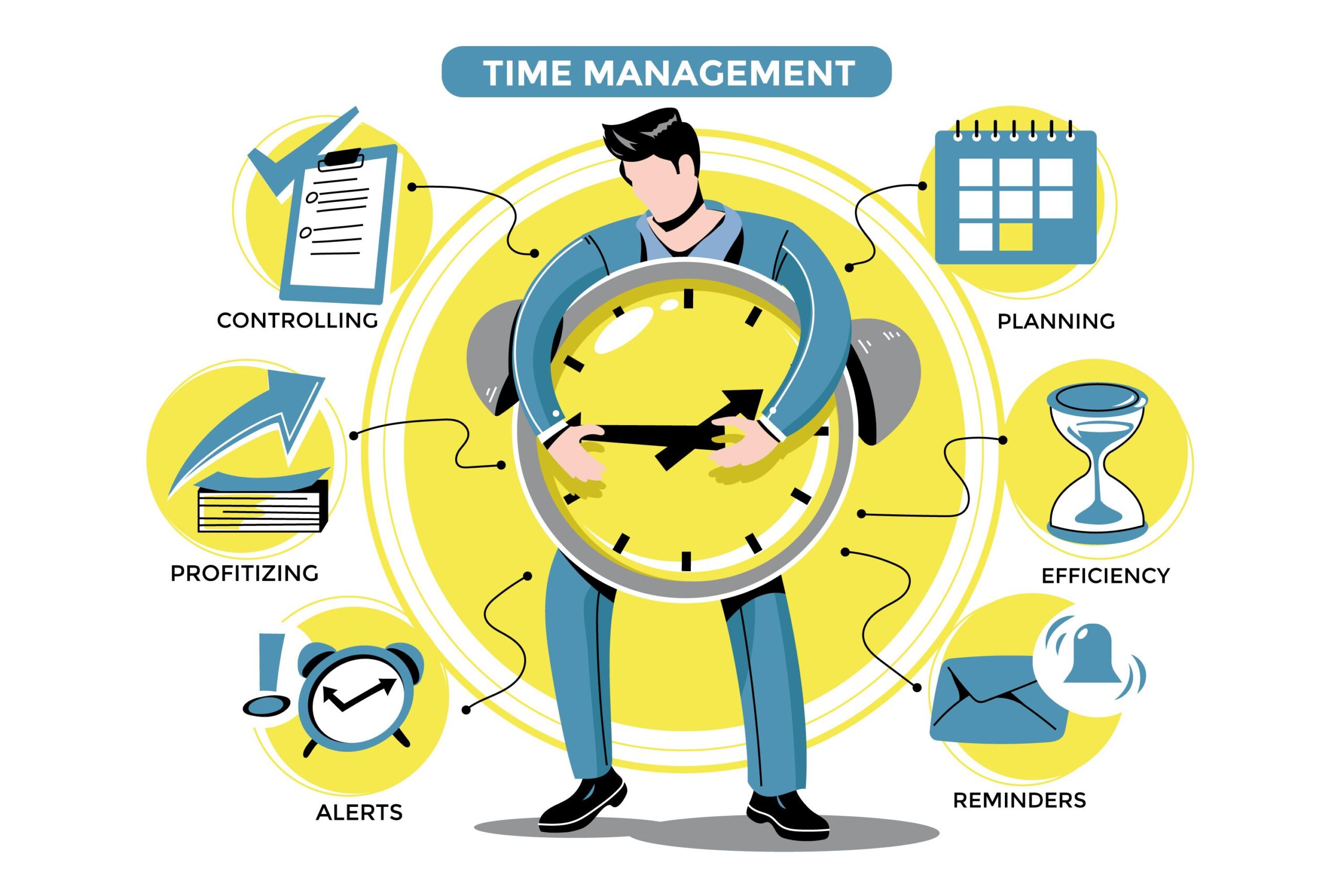Time Management for Students: Tips, Strategies, and Importance for Academic Success
Time management has become crucial for everyone in today’s fast-paced environment. Whether you are a working professional, student, or stay-at-home parent, effectively managing your time may help you stay focused, feel less stressed, and accomplish your objectives.

Knowing what constitutes good time management and managing time is essential if you want to take control of every minute of your life.
It may be challenging to balance maintaining an active lifestyle, participating in extracurricular activities, earning high grades, working a part-time job, maintaining a social life, and still having time for indulgences like social media or Netflix.
Check out: HOW RESEARCHERS HANDLE WORK-LIFE BALANCE LIKE A PRO
Everyone wishes they could accommodate one more item, do one more task, or give more time to a person. Unfortunately, we seldom manage our calendars well enough to accomplish this, either for lack of time or other reasons.
Hence, time management is crucial for students and researchers. If you do it, you will not only achieve your goals and be pleased doing it, but you will also maintain your sanity!
What is Time Management?
Time management is the process of planning and controlling how much time one spends on various tasks. Good time management allows a person to perform more tasks in less time, reduces stress, and leads to professional success.
Tips for Time Management
This blog post will go over time management for students that you can use regularly and help you learn the importance of time management. Let us dive right into it:
Set a planner
Making a daily schedule is a great time management strategy. It facilitates day-planning and task allocation. Make a list of everything you need to do that day and give each item a distinct time window. Prioritize your most critical tasks and focus on completing them first. A daily calendar may help you stay organized, maximize productivity, and minimize time wastage.
The most significant thing is that you do not need an elaborate, pricey agenda; all you need is a wall calendar, a tabletop planner, or free smartphone software that combines an agenda and calendar online. Scheduling the next day’s tasks on the previous day can further ease the planning and make you feel better organized for the new day.
Give a time limit for each task.
Setting a time limit for each work is another helpful time management suggestion. Decide on a reasonable deadline for each activity and adhere to it. This will help you in avoiding distractions and squandering time on meaningless activities. When you do a task in the allocated time, it will also make you feel accomplished.
Shut down any distractions.
Time-wasting distractions may be a big problem. Reducing distractions is crucial and effective time management for students. Begin by determining the primary sources of your distractions and devising strategies to eliminate them. This may include choosing a quiet workstation, shutting down pointless tabs on your computer, or turning off the notifications on your phone. Distractions can be blocked so you can concentrate and finish your work faster.
Create a Routine
Creating a routine is one of the best ways to manage your time efficiently. Decide on the place of work that suits you best; it can be the study desk, the dining table, the balcony, or the garden. You understand the most productive time of the day for yourself as a ‘night owl’ or ‘morning lark.’ Setting aside particular hours for work, breaks, and leisure activities is part of this. Make a timetable that suits you and follow it. Establishing a habit lowers stress, increases productivity, and keeps you organized. This is one of the best time management programs for students and researchers.
Set priorities
There are moments when there is too much to accomplish and insufficient time. In these situations, give yourself a short period to assess your priorities. Think about the deadlines that are most important to you and your energy level.
Before tackling activities requiring much concentration, see whether you can finish the simpler ones first. Crossing some items off your to-do list without becoming overwhelmed too soon can help relieve some of the stress. If you find it challenging to make time for everything, consider what you can put off or refuse.
By implementing these time-management strategies, you can take charge of your day and accomplish your objectives. Remember to set time limits for each work, make a daily planner, block out distractions, and build a habit.
If you do this, you can have a more satisfying life, be more productive, and experience less stress. Always remember that effective time management involves more than simply adhering to a strict routine; it also involves allowing room for flexibility. So, have fun and manage your time well!
If you still need suggestions, schedule a FREE consultation session with a Research Coach. I can give you more time management tips while you prepare for research. CLICK HERE to schedule the session.







